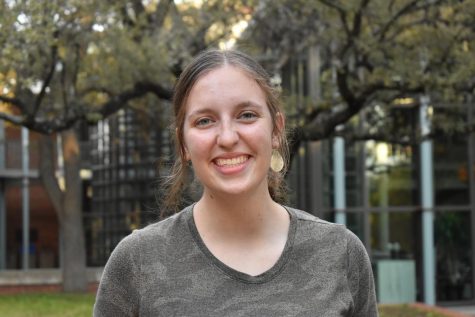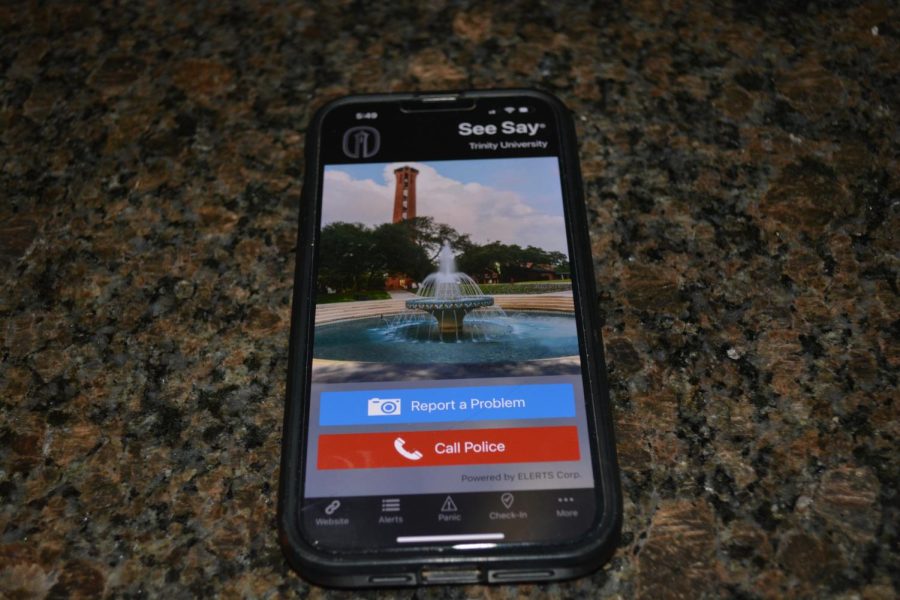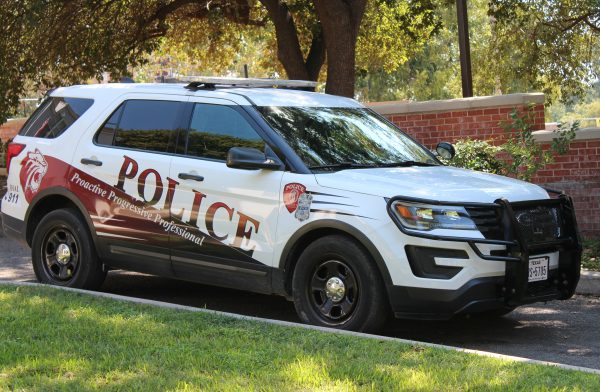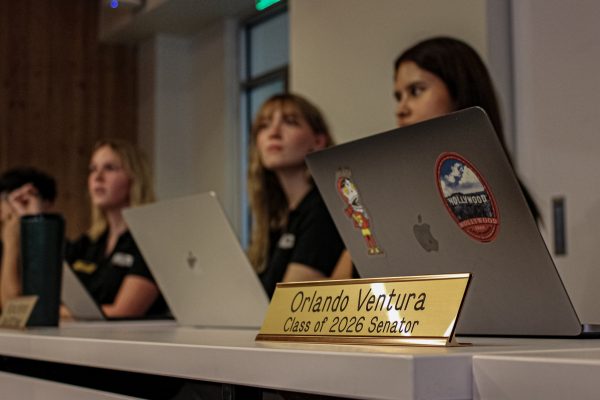‘Preparedness is everyone’s responsibility’: #BeTigerReady
Emergency manager joins TU community to promote effective emergency preparedness
In the past month, monstrous and destructive hurricanes have battered Puerto Rico and Florida, leaving many without reliable shelter, water sources or access to food. As the annual number of hurricanes and severe storms increases, many places that were once secure will be put at risk of storm damage. In times of uncertainty, preparedness plans are necessary to mitigate the devastating consequences of a severe weather event. At Trinity, there is an entire position dedicated to preparation, mitigation, response and recovery called the emergency manager. Lorenzo D. Sanchez came to Trinity in June with more than 15 years of emergency and business continuity experience to fill the role of an emergency manager.
Sanchez emphasized that although it is not always possible to prevent a disaster, it is possible to prepare in a way that lessens the impact. Engaging in safety and preparedness measures before, during and after an emergency situation matters for the safety of the responder and those around them.
“Preparedness is everyone’s responsibility. It’s not something to dismiss, and it’s not somebody else’s job to prepare. It’s everyone’s responsibility. When an emergency happens around you, you’re front and center — don’t be scared, be prepared,” Sanchez said.
Sanchez went through three important steps that can help prepare students, staff and faculty in an emergency situation.
The first rule is to make a plan. Sanchez said that one must assess the circumstances and decide the best course of action, which will be different depending on the situation. Know what can happen and make a plan of action.
Sanchez’s second rule is to be informed. Every member of the Trinity community is encouraged to sign up for and update their information in the TrinALERT Emergency System on TigerPaws. Another way that the community can stay informed is by checking in with the trinity.edu/emergency website, where important updates and tips are posted.
Additionally, Paul Chapa, assistant vice president of public safety-enterprise risk management and chief of TUPD, suggests that every Trinity community member get the See Say mobile app that gives students access to the dispatcher by text.
“Our faculty and staff members and our students that are on campus, you’re responsible for your safety, you need to be aware of your surroundings, you need to make sure that you are paying attention to what’s around you: situational awareness,” Chapa said.
The third and last principle is to make a go-kit. Sanchez recommends keeping a non-perishable snack, a bottle of water, an extra dose of medication, a first-aid kit and more at the ready (from the Texas Ready emergency kit checklist). He also recommends having a kit in your home, car and office.
“There’s a lot of behind-the-scenes-preparedness that happens here at Trinity that we engage in on a sunny day to prepare for that stormy day. Making a go-kit is vitally important, and I encourage every student in their residence room to have a kit. And then, most importantly, is to talk to their roommate about what to do in an emergency,” Sanchez said.
In addition to personal safety, there are several other ways in which university partners are preparing to keep the Trinity community safe and prepared. During the severe winter storm in early 2021, Trinity dining services was prepared to continue serving students despite supply issues. Charles Robles, Food Service Director, wrote in an email about how dining services responded to the situation based on the detailed plans.
“Before the Snowpocalypse, we have always made sure to have a little of emergency food inventory and a dedicated team willing to stay on campus just in case the weather became too difficult to travel in,” Robles wrote. “We also helped provide supplies to St. Mary’s and UTSA during the event. We had prepared enough that we could afford to help not just our students but the students on those campuses.”
In fact, Dining Services is just one of the campus functions that continue during an emergency situation. Sanchez leads the Crisis Management Team (CMT), which is a group of campus leaders that meets monthly to discuss preparedness and mitigation strategies and convenes in times of crisis. From facilities to academics to health services, staff and faculty join together in the event of an emergency to carry out safety procedures that the president’s emergency advisory council signs off on.
Beyond emergency weather conditions, TUPD is continually trained to respond to violent threats. Chapa highlighted that police vehicles are equipped with resources including breaching tools, protective equipment and a medical bag with an AED. Another part of their response preparation is outreach like the Oct. 4 National Night Out event and “Copcorn.”
“When we engage with our staff, faculty and students, we don’t want that first engagement to be during a critical situation. So, what we do is we reach out to our community beforehand,” Chapa said.
Overall, in the case of an emergency, there are active campus partners ready to engage in the situation. Nonetheless, as the witnesses that make the first response, Sanchez and Chapa both advocate for individual preparedness.
“Together we can be Tiger-ready,” Sanchez said. “If we’re partnering together then we can weather any storm. Tigers helping Tigers is the best approach to resiliency.”

Hello, y'all! I'm Abby Power, and I am a sophomore news reporter from Kyle, Texas. I intend to major in Political Science, Spanish, and Global Latinx Studies....

I am a senior photographer from Houston, Texas majoring in Biology on the pre-PA track. I love sports photography and just being able to capture a moment...












